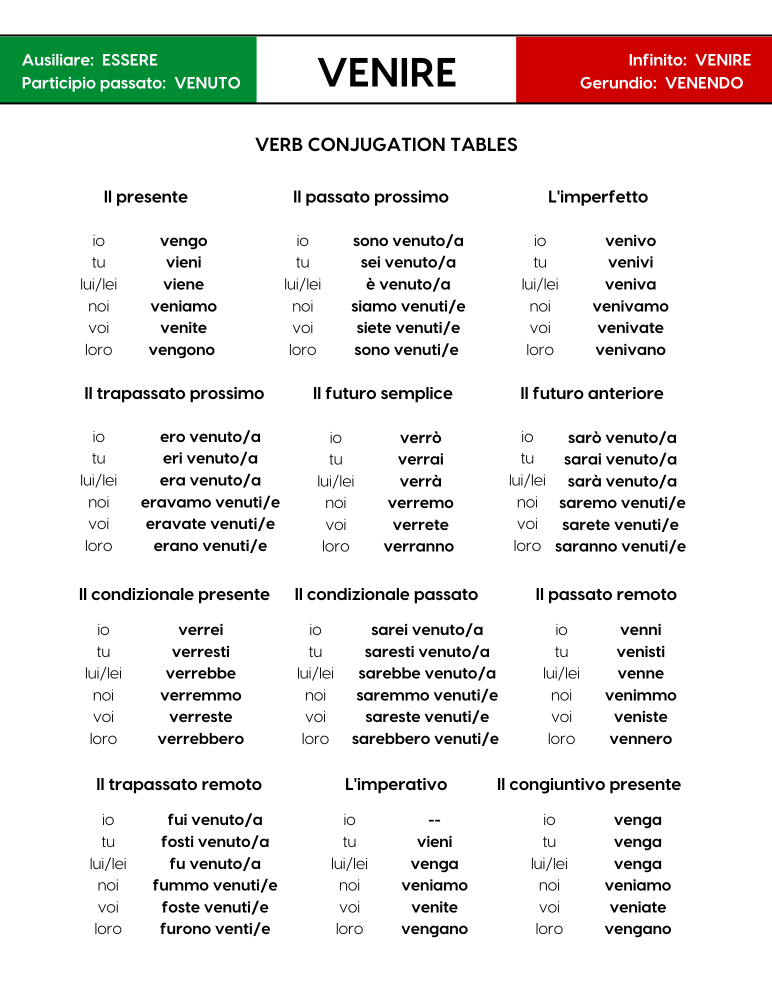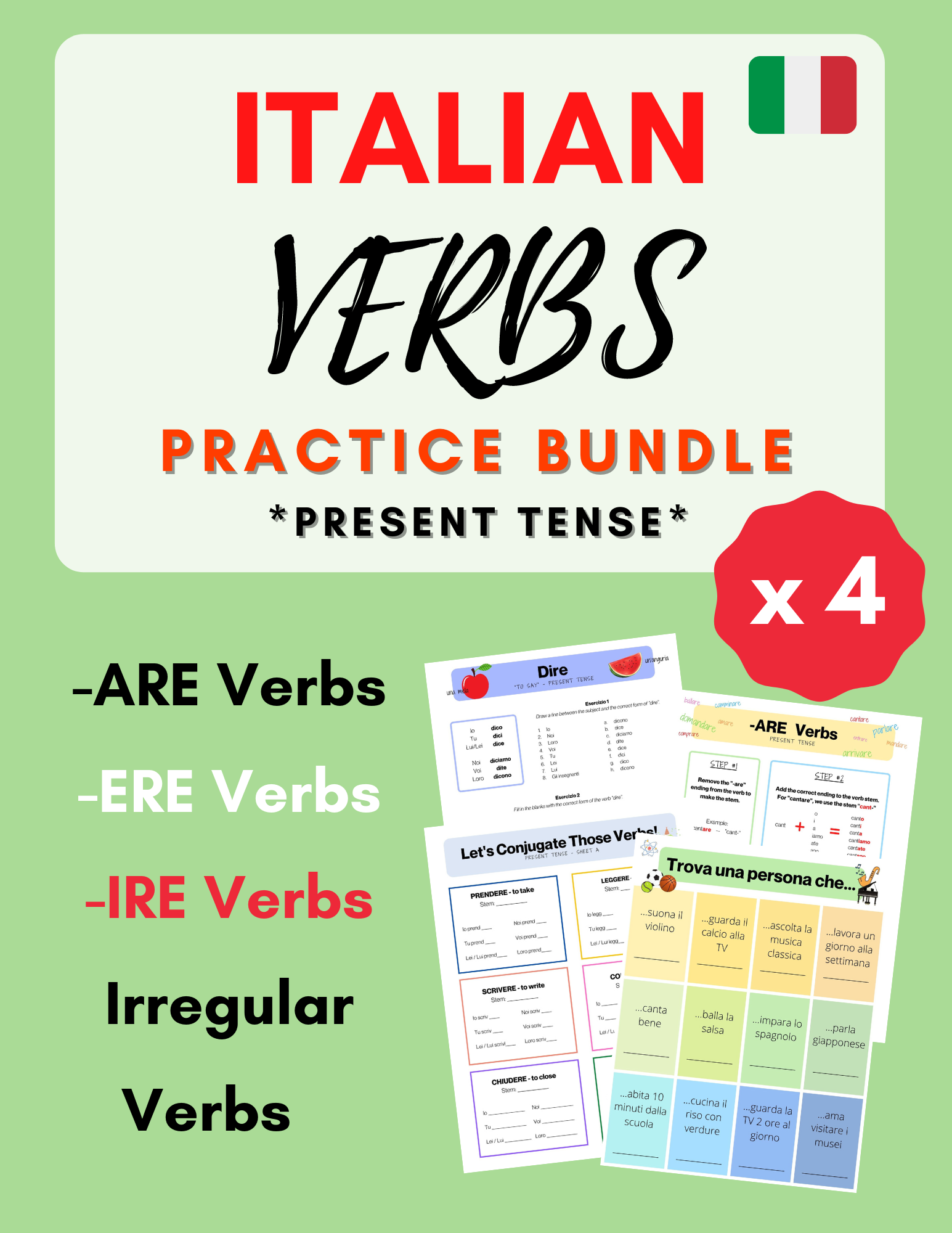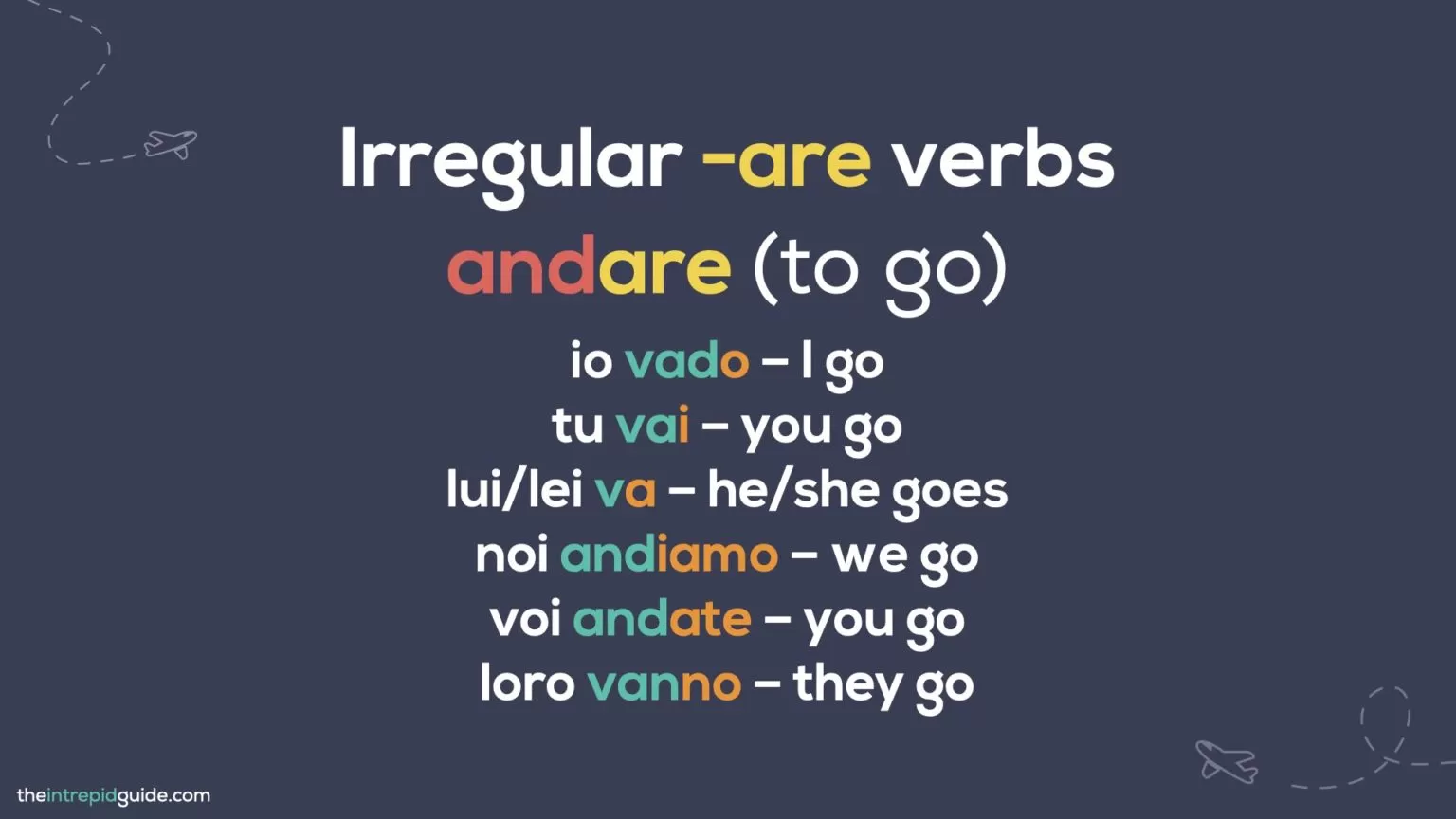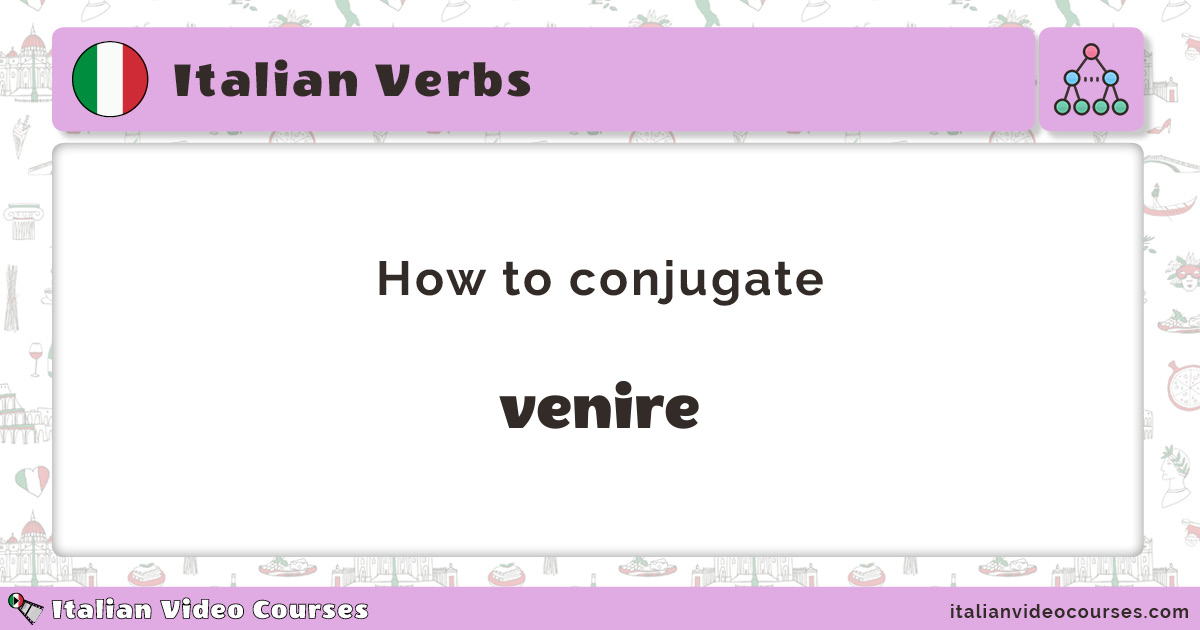
The Italian Verb Files Venire The Happy Maple Language Co
May 22nd, 2023 - Vera The Italian verb "venire," meaning "to come," is a versatile and frequently used verb in the Italian language. Mastering the conjugation of "venire" is crucial for expressing movement, arrival, and a variety of other meanings in different contexts.

La forma passiva col verbo "venire". impariamoitaliano learnitalian
If you're having difficulty with the English verb venire, check out our online English lessons!Vatefaireconjuguer is a free online conjugator created by Gymglish. Founded in 2004, Gymglish creates fun, personalized online language courses: English course, Spanish course, German course, French course, Italian course and more. Conjugate all English verbs (of all groups) in every tense and mode.

Italian Verb "VENIRE" (10 of its most common USES Present Tense
Conjugation of the Italian verb venire A list of the common conjugations for the Italian verb venire, along with their English translations. Infinitive; venire: to come: Present Indicative; io vengo: I come: tu vieni: you come: lui viene: he comes: lei viene: she comes: noi veniamo: we come: voi venite: you come:

VENIRE Conjugation Italian Italian Verb COME YouTube
Conjugate the Italian verb venire in several modes, tenses, voices, numbers, persons : indicative mode, subjunctive, imperative mood, conditional, participle form, gerund, present, past, future perfect, progressive.. 3rd conjugation verb - venire is intransitive (essere auxiliary) venire feminine. Translation venire. venire to come.

learn Italian Verb 'venire' Present Tense Conjugation YouTube
Cher Hale Updated on January 18, 2020 Venire is an irregular verb of the third conjugation that translates most simply to the English "to come," but whose uses in Italian include amounting to, turning out, descending from, manifesting or occurring, hailing from, and arising or coming to.

The Italian Verb Files Venire The Happy Maple Language Co
Conjugation Dictionary Grammar 'venire' conjugation table in Italian Go to the definition page of venire Indicative Subjunctive Imperative Infinitive venire Past Participle venuto Gerund venendo Indicative Present io vengo tu vieni lui/lei/Lei viene noi veniamo voi venite loro vengono Imperfect

Verbos Italianos Coniugazione Verbo Venire
Venire Definition: To come, arrive Venire Can Also Mean Originate/come from Comes out/turns out Occur/happen Note: Venire is an irregular -ire verb, so you'll need to memorize the conjugation on your own. Italian Venire Conjugation Venire Presente Conjugation: Venire Presente Examples Chi viene con me? = Who is coming with me?

All You Need to Know About the “Venire” Conjugation in Italian
Learn how to conjugate it in the most common tenses and listen to idioms. After ANDARE, here's another irregular verb you can't do without: VENIRE - to come.

The Italian Verb Files Venire The Happy Maple Language Co
Venire is an irregular, third conjugation verb that means to come, to arrive. Non dimenticarti di venire a trovarmi (Don't forget to come and visit me)Di solito veniamo in questo posto ogni sera (Usually, we come to this place every night)Il papa dice che arriverà domani (Dad says is arriving tomorrow)Other verbs of the same type as venire include avvenire (to happen), convenire (to agree.

How to conjugate & use VENIRE to come Learn Italian Grammar YouTube
Here you can find the conjugation of the Italian irregular verb venire which means "to come". Lesson outline Hide 1. Indicativo 1.1. Presente 1.2. Passato prossimo 1.3. Imperfetto 1.4. Trapassato prossimo 1.5. Passato remoto 1.6. Trapassato remoto

How to Conjugate Italian Verbs in 3 Simple Steps [Italian for Beginners
VENIRE! VENIRE means "to come" in English. But, as with many Italian verbs, it can be used in a variety of different ways. VENIRE is irregular in many tenses such as the present, the future, its past participle (venuto), etc. So when you are conjugating it, double check if you are unsure. VENIRE - Italian Verb Conjugation Table

Conjugation Venire 🔸 Italian verb in passato prossimo, imperfetto
Venire Conjugation: Present Tense *Irregular forms in bold. Venire Passato Prossimo The passato prossimo of Venire is formed by combining the auxiliary verb essere with the past participle venuto. Venire Gerundio The gerundio of Venire is venendo. Regular vs. Irregular Verbs

The presente tense of verb "VENIRE" (to come) learnitalian
Italian Verb Conjugation In the Italian conjugator, you can look for infinitive forms, such as "scherzare", "nascere" or "dormire", but also conjugated forms, such as "tornato", "comprando", "è" or "arriverà". The conjugator recognizes reflexive verbs such as "alzarsi", "curarsi", "divertirsi" as well as negative forms ("non capire").

Conjugation of venire
Verb conjugation: conjugate venire in Italian, conjugation models, conjugation table, conjugate Italian verb, irregular verbs, model tables for Italian verbs, venire conjugation model. Translation Context Grammar Check Synonyms Conjugation.

Italian conjugation chart PDF for Italian verb conjugation
Venire present tense conjugations Venire is an irregular - ire verb: Related lessons Antonym: andare (to go) Subject pronouns Top 11 irregular verbs En español Venir En français Venir Share / Tweet / Pin Me! Laura K Lawless Virtual Italian Teacher at Lawless Languages | Website | + posts Ciao!

VENIRE ITALIAN IRREGULAR VERB YouTube
The Italian venire conjugation is widely used to express movement. Venire is an irregular verb and is the equivalent of the English "to come". It means to come from, to arrive, to occur, and is sometimes used in a welcoming tone too (e.g. Vieni! - Come on in!)